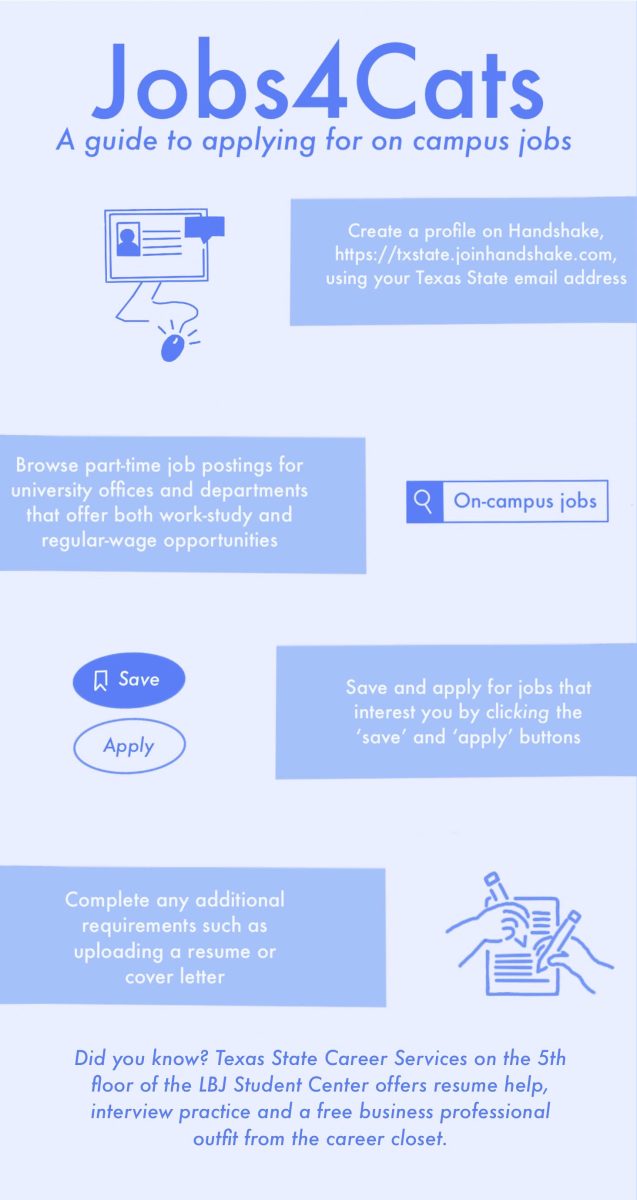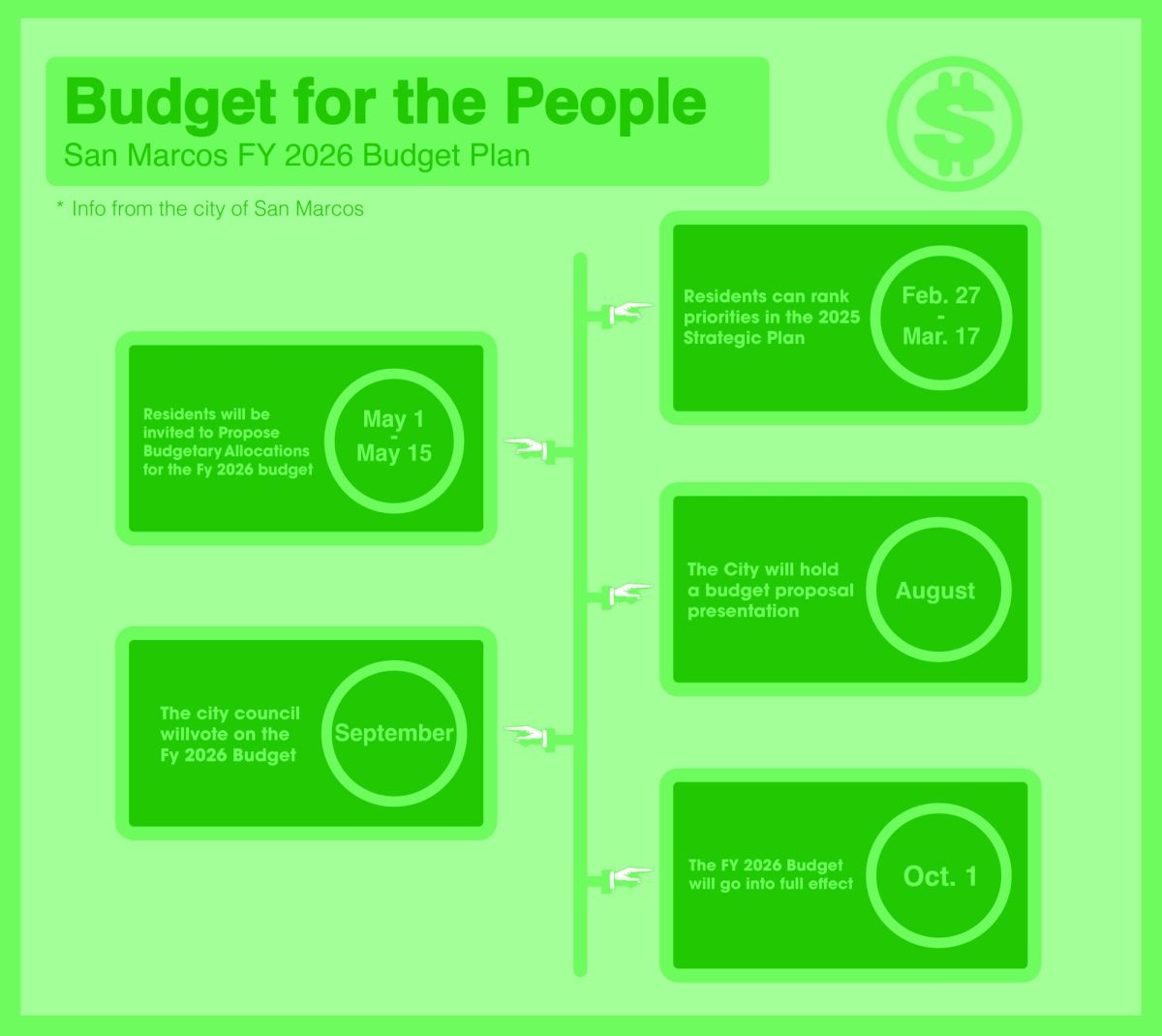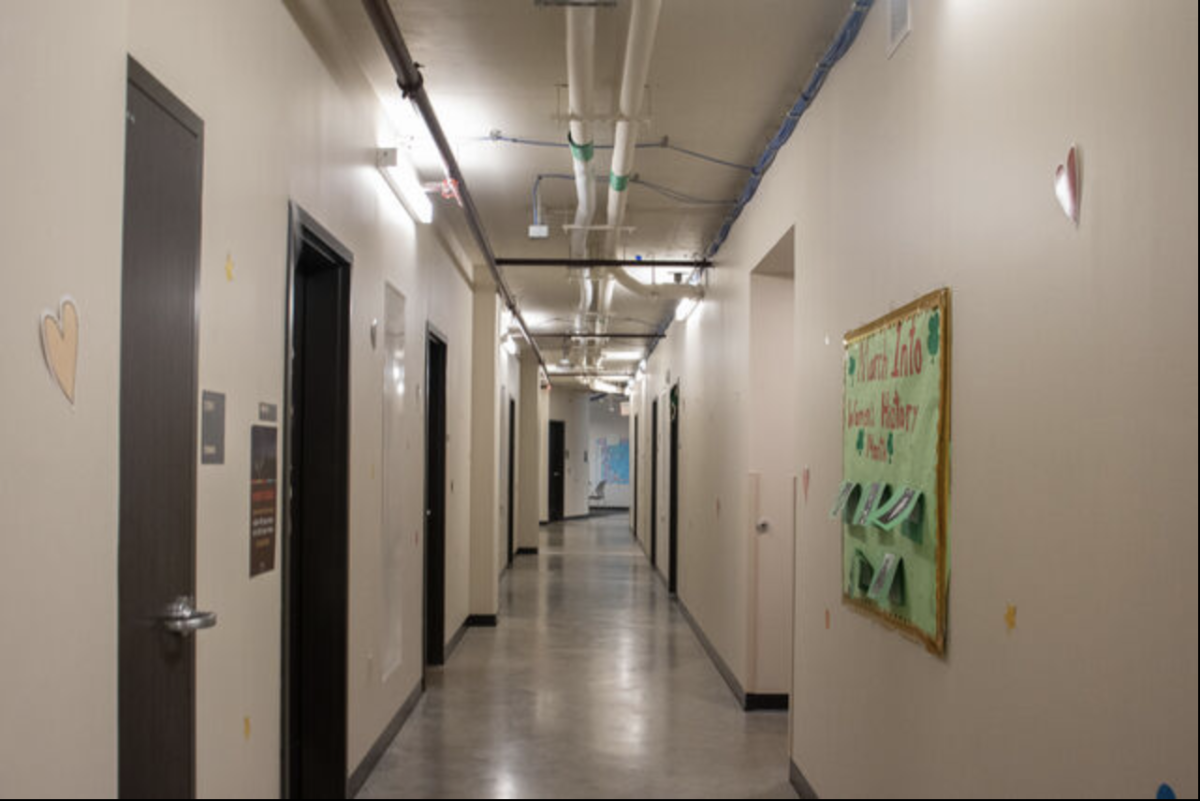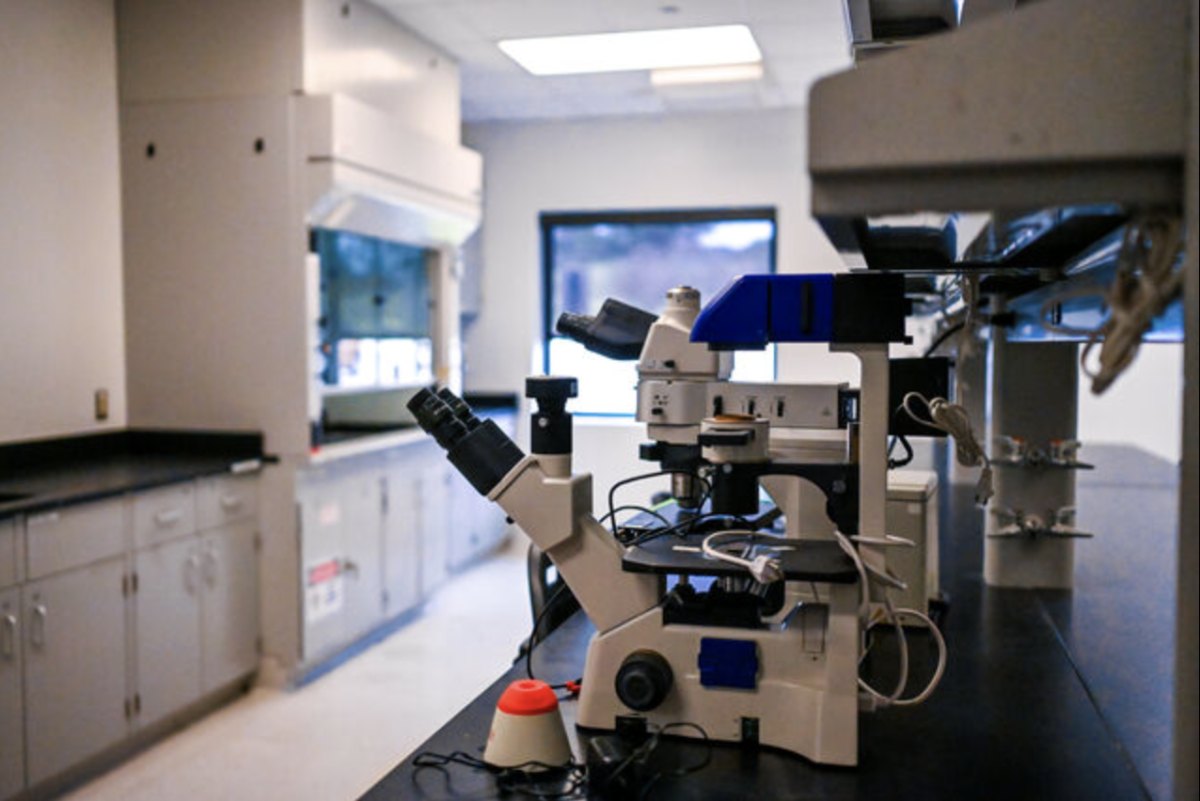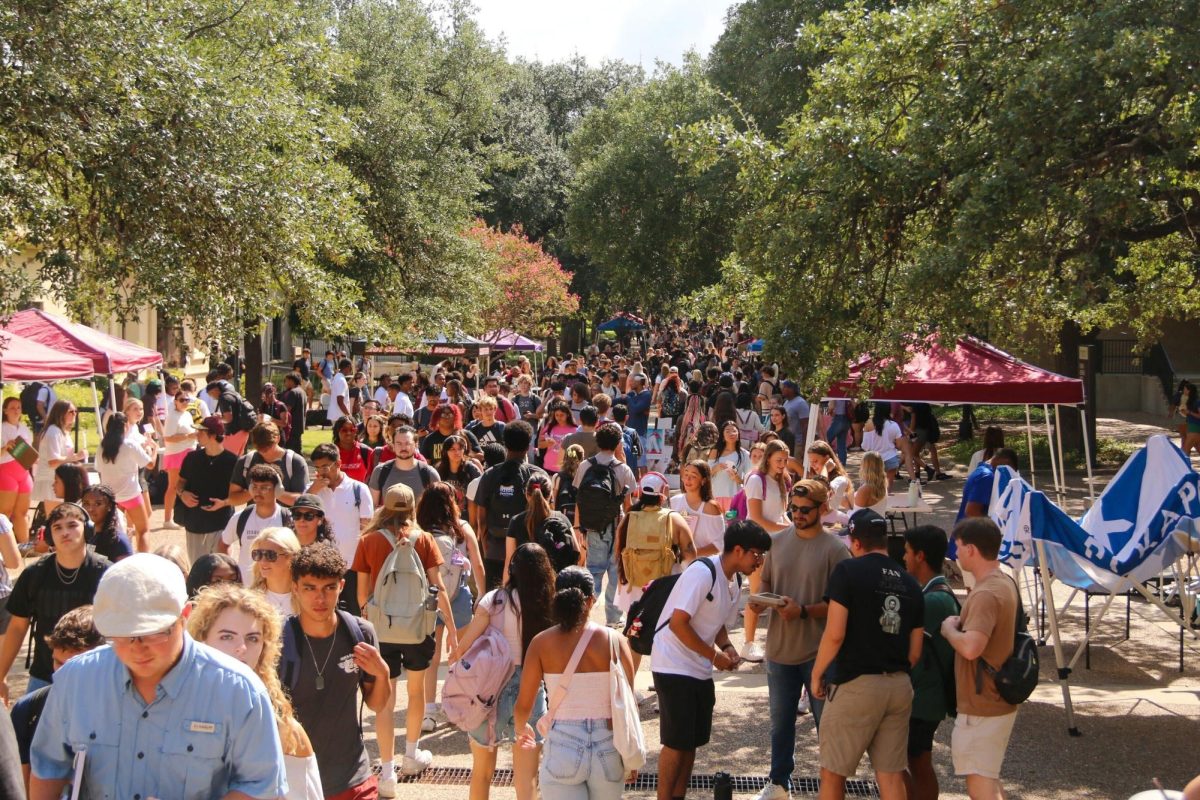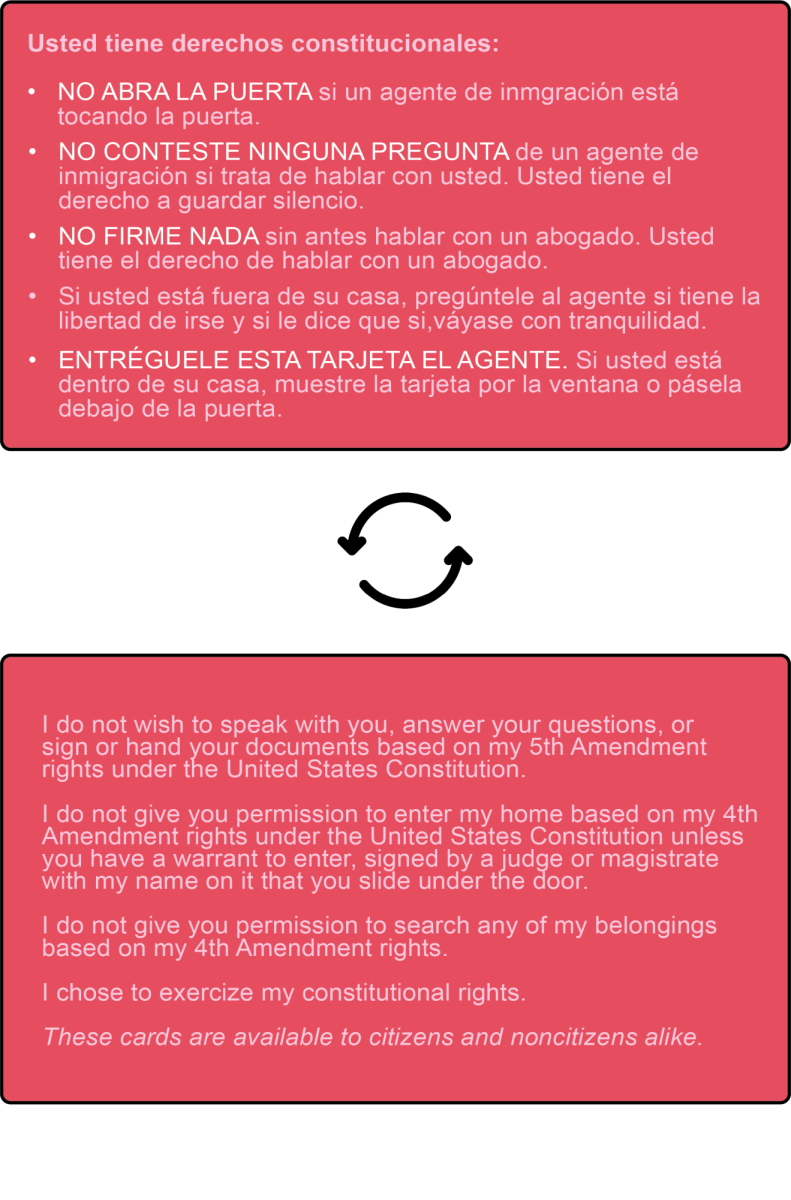As the fall semester is approaching and new students are stepping foot onto campus, the prospect of employment on-campus is prominent in many minds of students both returning and new.
There are two types of employment on-campus: work-study and campus part time jobs. According to the Career Services website, work-study is for students who demonstrate financial need through the Free Application for Federal Student Aid (FAFSA), so not all students can be granted work-study. Campus part time jobs are open to any student who would like to apply for them. There are a variety of on-campus jobs that can range from being a lifeguard, tutor or lab assistant.
Students can find on-campus jobs through the program Handshake, which one can use to find a job, look at requirements and apply.
“We use the platform Handshake. That’s where all the on-campus jobs and now work-study jobs are posted. There’s even a filter that you can just filter by on-campus jobs and see the full list,” Laura Jones, assistant director of Employment Engagement, said.
One aspect of on-campus jobs that differs from off-campus part time jobs is that students are restricted to 25 hours a week, which can provide flexibility to students with their classwork.
“[Employers] don’t let you work more than 25 hours a week so I was able to manage my classes without worrying that they would put me on the schedule too much,” Kynnady Etuk, a pre-nursing sophomore and desk assistant, said.
According to Jones, because supervisors recognize that these employees are students, they provide more flexibility especially when it comes to schoolwork.
“When you’re working on our campus, you’re working with staff and faculty who understand that you’re a student first and so you get a bit more flexibility,” Jones said. “If something comes up during midterms or you have a project, if you need to adjust your hours supervisors tend to be more flexible because we want you to be successful in your school.”
Employers see student jobs as a growth opportunity which can take some pressure off of students to be a perfect employee and to have everything figured out.
“The stakes are a bit lower for student jobs on-campus than it would be for an internship or entry level job,” Jones said. “We’re not expecting the students coming into student jobs to have crafted all of their professional development. It’s a growth opportunity and we all know that as we’re hiring.”
However, one aspect of student jobs that some want improved is pay. According to the University Pay Plan, student workers can make anywhere from minimum wage to $17 an hour but many jobs pay on the shorter end of the spectrum.
“I feel like the wages could definitely be improved because we need groceries and we need to live and for some of us only making $8-9 an hour, that’s not really enough to make ends meet all the time,” Etuk said.
For students looking at on-campus jobs, one tip that Yakima Anderson, a career experiences coordinator, has is to do research on the job that they are applying for.
“Get to know what their office is all about or what they do there because that will come through in the interview as you’re dedicated and shows your interest in working for that department,” Anderson said.
Anderson also recommends that students practice interviewing as it is a crucial part to getting a job both on-campus and off.
“Practice interviewing to get comfortable because sometimes you think you’re presenting one way and it’s coming off differently, get comfortable with talking about your skills and talking about yourself in that condition,” Anderson said.
As on-campus jobs are built around student’s school schedules, it is recommended that students who are planning on getting an on-campus job to schedule their classes in blocks so that they can work multiple shifts a week.
“Pick a class schedule where you can work hours chunks at a time because a lot of Texas State employers only want you if you can work chunks at a time not just an hour here and an hour there,” Etuk said. “I would block classes together either in the morning or the afternoon so that you can work for more than two hours at a time.”
Career Services is participating at Boko’s Browse and will host concurrent sessions during New Student Orientation for students who have more questions surrounding employment on-campus.
For more information on on-campus jobs, visit the Career Services website at www.careerservices.txst.edu/hireabobcat/on-campus-jobs.
Categories:
Experts discuss student job success
Blake Leschber, News Editor
June 5, 2023
0
Donate to The University Star
Your donation will support the student journalists of Texas State University. Your contribution will allow us to purchase equipment and cover our annual website hosting costs.
More to Discover



